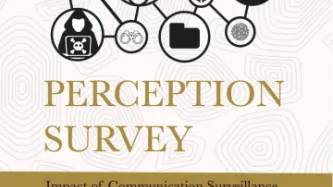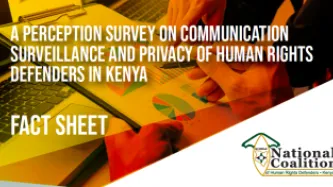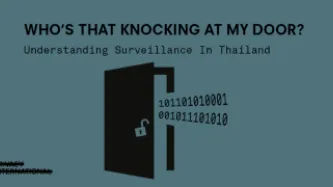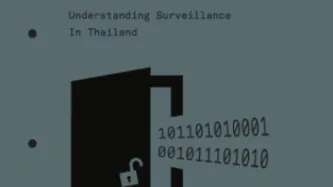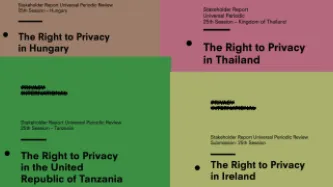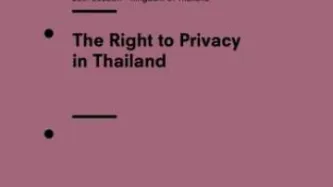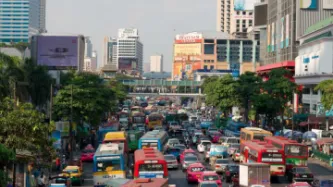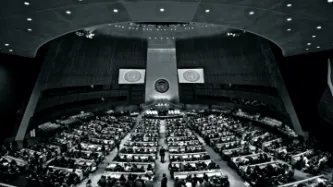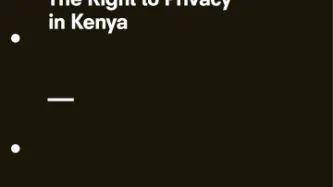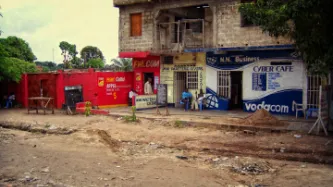Search
Content type: Report
Human rights defenders across the world have been facing increasing threats and harms as result of the use of digital and technological tools used by governments and companies which enable the surveillance, monitoring and tracking of individuals and communities. They are continuously at risk of violence, intimidation and surveillance as a direct consequence of the work they do. Such surveillance has been shown to lead to arbitrary detention, sometimes to torture and possibly to extrajudicial…
Content type: Case Study
On 3 December 2015, four masked men in plainclothes arrested Isnina Musa Sheikh in broad daylight (at around 1 p.m.) as she served customers at her food kiosk in Mandera town, in the North East of Kenya, Human Rights Watch reported. The men didn’t identify themselves but they were carrying pistols and M16 assault rifles, commonly used by Kenyan defence forces and the cars that took her away had their insignia on the doors. Isnina’s body was discovered three days later in a shallow grave about…
Content type: Long Read
The Privacy International Network is celebrating Data Privacy Week, where we’ll be talking about how trends in surveillance and data exploitation are increasingly affecting our right to privacy. Join the conversation on Twitter using #dataprivacyweek.
It is often communities who are already the most marginalised who are at risk because of the privacy invasions of data-intensive systems. Across the globe, we see the dangers of identity systems; the harms of online violence against women and the…
Content type: Report
In December 2018, the National Coalition of Human Rights Defenders-Kenya published a report analysing the needs and concerns of human rights defenders (HRD) in relation to privacy, data protection and communications surveillance.
A summary of their findings is below. Access the full report on their website.
Content type: Long Read
In January 2017, Kenya’s information and communication technology regulator, the Communications Authority of Kenya, announced that it was spending over 2 billion shillings (around 14 million USD) on new initiatives to monitor Kenyans’ communications and regulate their communications devices. The press lit up with claims of spying, and members of Kenya’s ICT community vowed to reject the initiatives as violating Kenyans’ constitutional rights, including the right to privacy (Article 31…
Content type: Report
This investigation focuses on the techniques, tools and culture of Kenyan police and intelligence agencies’ communications surveillance practices. It focuses primarily on the use of surveillance for counterterrorism operations. It contrasts the fiction and reality of how communications content and data is intercepted and how communications data is fed into the cycle of arrests, torture and disappearances.
Communications surveillance is being carried out by Kenyan state actors, essentially…
Content type: News & Analysis
In our latest report “Who’s that knocking at my door? Understanding surveillance in Thailand”, we highlighted various methods of surveillance that the Thai Government employs. Included in these methods was the finding that Microsoft was the only technology company which by default trusts the Thai Government’s root certificate. Root certificates ensure the validity of a website, and protect users from being tricked into visiting a fake, insecure website. Most technology companies including Apple…
Content type: Report
This investigation looks at how surveillance is being conducted in Thailand. The first part of the investigation focuses on the ties between telecommunication companies and the state, and the second part of the investigation focuses on attacks conducted in order to attempt to circumvent encryption.
Content type: News & Analysis
Over the next two weeks, the 25th session of the Universal Period Review Working Group will take place in Geneva. The Universal Period Review is a key mechanism of the UN Human Rights Council to remind UN Member States of their responsibility to respect and implement all human rights and fundamental freedoms.
Amongst others, Hungary, the United Republic of Tanzania, Thailand, and Ireland will be reviewed. Privacy International, in collaboration with national civil society…
Content type: Advocacy
This stakeholder report is a submission by Privacy International (PI) and Thai Netizen Network (TNN). PI is a human rights organisation that works to advance and promote the right to privacy and ght surveillance around the world. TNN is a Bangkok-based organisation that works to promote human rights in Internet policy and support the work of human rights defenders in digital environment. PI and TNN wish to to bring concerns about the protection and promotion of the right to privacy in…
Content type: Long Read
Written by Eva Blum-Dumontet
A recent case of lèse-majesté in Thailand (speaking ill of the monarchy) is a worrying example of how Western companies do not just work with governments that fall short of international human rights standards, but can actually facilitate abuses of human rights.
Our investigation on the trial of Katha Pachachirayapong — accused of spreading rumours on the ill-health of the King Bhumibol Adulyadej, thereby causing sharp falls in the Thai stock market — reveal the…
Content type: News & Analysis
The focus on the right to privacy continues at the United Nations, with Kenya, Turkey, and Sweden being recently challenged over their surveillance practices during the Human Rights Council's Universal Periodic Review of States' human rights records.
The explicit mention of the right to privacy in recommendations submitted by Slovenia and the Netherlands during the review of Sweden, in the recommendation by Estonia during Turkey's review, and Liechtenstein's recommendations to…
Content type: Advocacy
This stakeholder report is a submission by Privacy International (PI) and the National Coalition of Human Rights Defenders in Kenya (NCHRD-K). PI is a human rights organisation that works to advance and promote the right to privacy around the world. NCHRD-K is a non-governmental organisation registered as a Trust in Kenya. It was established to strengthen the work of human rights defenders (HRDs) in the country by reducing their vulnerability to the risk of persecution and by enhancing their…
Content type: News & Analysis
One of the first things that strikes you about the chaotic East African metropolises of Kenya, Uganda and Zimbabwe is the blanket of adverts for mobile phone companies that covers them, from the walls of the immigration hall at Harare airport, to the rickety shacks that line the dusty streets of Kampala. Where official signage is unavailable, DIY versions are painted onto the roofs and walls of houses and small businesses. Stores selling mobile phones are rarely more than a few short steps away…
